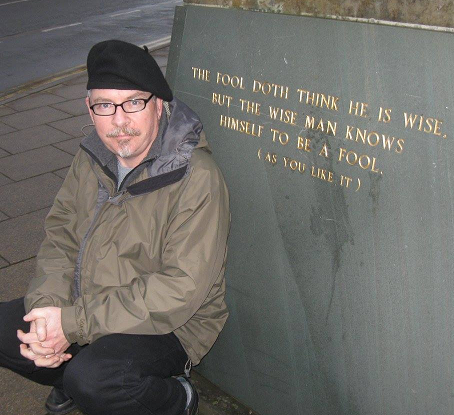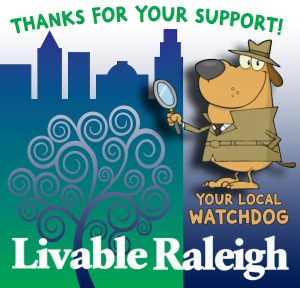
Chris Crew was born in Morganton, NC and moved to Raleigh in 1964. He’s been a resident of Historic Oakwood since 1975.
Educated at NCSU and UNC-Chapel Hill, works for the State of NC in Public Safety. Preservationist, Cook, Trombonist, Brewer, Choirboy, Grandfather.
Chris delivered the following comments to City Council on October 10, 2023:
Adopting Preservation as a value requires us to take stock of what we have. Our cultural heritage and natural environment are ours to save, or squander and lose.
Growth isn’t bad; it’s inevitable. Untrammeled growth should not be the default. Another name for that kind of growth is Cancer.
In the last 10 years, Wake County lost 10% of its tree canopy.
Here in the City of Oaks, that loss has disproportionately come to the underserved and older, established neighborhoods.
According to an article in NC Newsline last month: The Wake County Land Cover Analysis and Tree Canopy Assessment shows that underserved communities, like those along New Bern Avenue, already tend to have fewer trees and more concrete.
These census tracts contain on average 6% less tree canopy cover and 10% more impervious surface – buildings, parking lots and streets that absorb heat.
Residents of these urban heat islands disproportionally experience environmental and public health burdens: poor air quality, higher risk of heat-related illness, higher energy bills and damage to roads and homes because of thermal expansion and contraction.
In Raleigh, tree loss is especially acute in northeastern and southeastern parts of the city, where growth and development are widespread.
Half of the entire city lacks a tree canopy.
Recent activity shows that corporate investors are most active in low income and minority neighborhoods in the same areas.
Development concessions given to corporate entities who are speculatively buying up land destabilize our neighborhoods and drive up property taxes to the detriment of the underserved and elderly.
Where are these citizens, our neighbors, to go?
Raleigh’s development incentive for housing affordable at 60% AMI is hollow.
Let’s do the math:
- 60% AMI for a family of 4 is $67,980 per year. $33.90/hour.
- 30% for housing: $1699 per month.
- Average two-bedroom rent in Raleigh: $1760 per month.
Your incentive represents a benefit to renters of $60.50 per month—not even a week’s worth of groceries, and it puts wealth in the pockets of developers who are involved in $70 million projects.
What are the solutions?
- Target education and outreach to generational homeowners about the value of their property to help prevent dissolution of naturally occurring affordable housing.
- Use GIS tools to analyze real estate transactions and patterns of ownership at the parcel level and devise strategies to preserve neighborhoods and family ownership.
- Put the staff to work developing programs and funding sources to support and foster home maintenance and repairs and development of sustainability in established lower-income neighborhoods.
- Decouple the wholesale zoning changes associated with the New Bern Area BRT and TOD and re-engage with impacted communities and stakeholders and show that you are listening and considering their dreams, wishes and ambitions above those of the Development Community
If you appreciate the kind of reporting we bring to you
|
Please donate $10 or $20, Thanks for supporting |
 |

